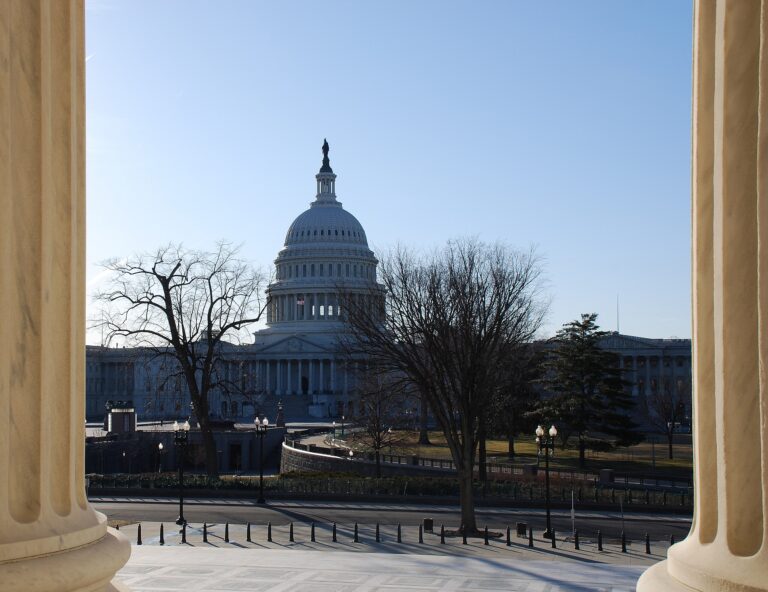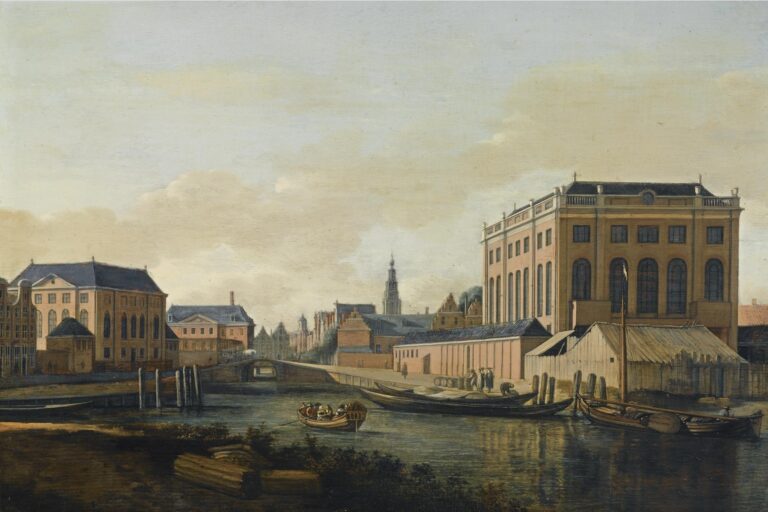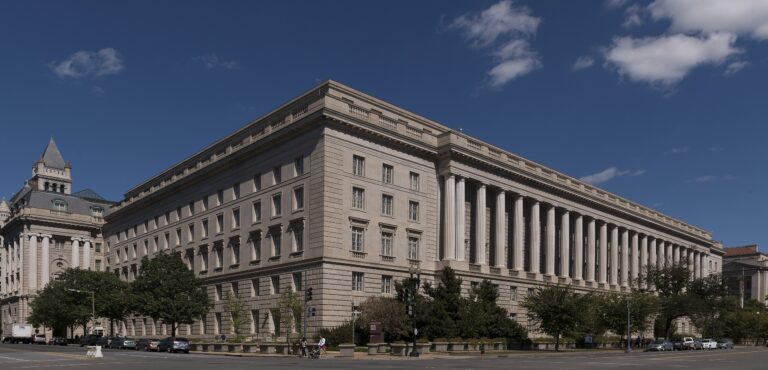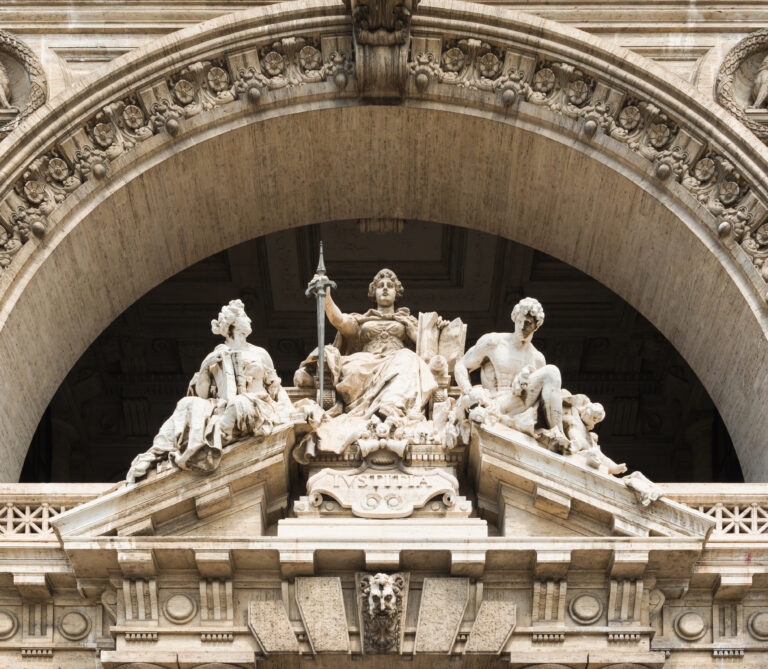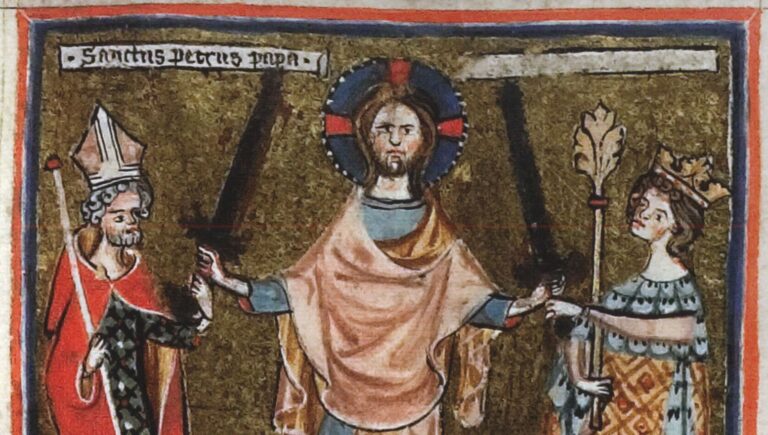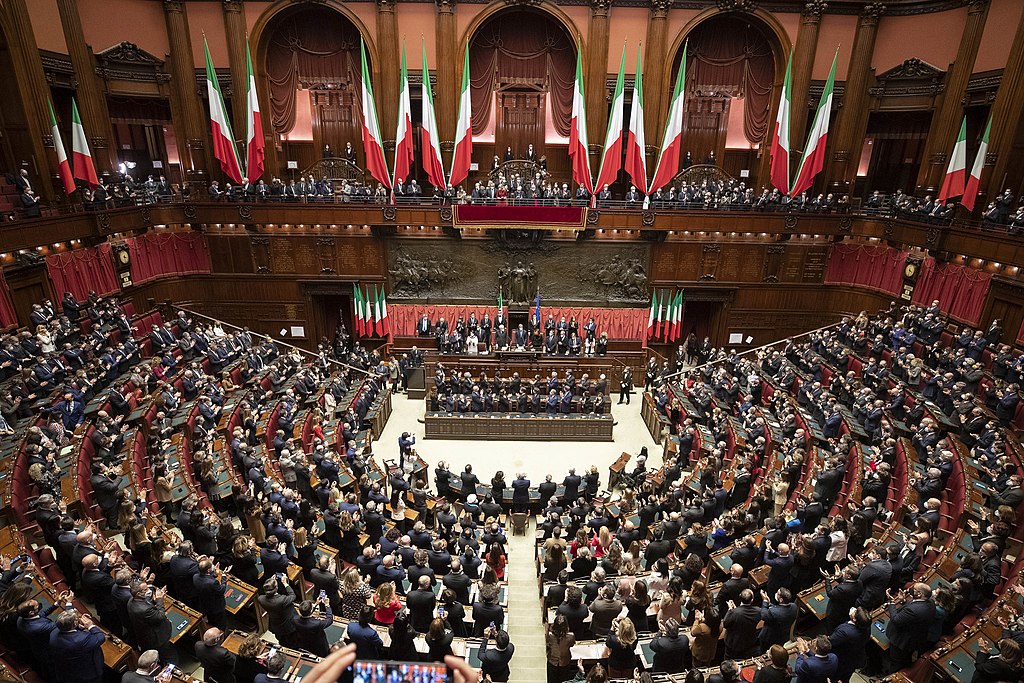
Democracy and Religions in Italy Beyond the Concordat and Agreements: Towards a Participatory Model
Davide Dimodugno
Italian Chamber of Deputies in Palazzo Montecitorio, Rome, Italy by Palazzo del Quirinale (PD-ItalyGov)
This paper summarizes and translates into English the article, Democrazia e religioni oltre il concordato e le intese: verso una declinazione partecipativa nei rapporti tra Stato e confessioni religiose?, published in the Italian Law & Religion Journal, Stato, Chiese e pluralismo confessionale. The full text is available in open access.
Forty years after the Villa Madama Agreement, which redefined relations between the Italian Republic and the Catholic Church, and the first agreement with the Waldensian Table, it has become necessary to reconsider the instruments governing the dialogue between the State and the religious denominations. The Italian constitutional framework, based on the dual model of concordats under Article 7 and agreements under Article 8(3), has generated a system of “necessary bilateralism” that, while historically justified, today reveals structural limitations. On the one hand, bilateral agreements have allowed minority denominations to emerge from legal invisibility and gain recognition, but they have also produced uniform “photocopy” models that rarely reflect the specific identity of each faith. On the other hand, unilateral state legislation, long advocated as a possible alternative, risks flattening the religious landscape and disregarding diversity.
The challenge is therefore to imagine a “third way” that moves beyond the rigid opposition between unilateralism and bilateralism. This contribution proposes the use of participatory democracy as a legal and political tool for managing relations with religions. The central idea is that religions, as social actors with constitutionally protected interests, should be engaged in structured, multilateral dialogues convened by public authorities at both national, regional, and local levels. Such participation would not replace the current system of concordats and agreements but would complement it, providing more flexible and inclusive instruments to address issues of common interest in a pluralist society.
The inspiration comes from the broader theory of participatory democracy, which emphasizes inclusive deliberation and citizen involvement in public decision-making. Applied to religion, this model would allow both major and minor denominations, even those without agreements, to express their perspectives in contexts where public policies intersect with religious life. Unlike interfaith or ecumenical dialogue, the focus here is not theological but administrative and legal: how to manage urban planning, cultural heritage, education, healthcare, and environmental policies in ways that respect religious pluralism.
The Italian experience during the COVID-19 pandemic provides a telling precedent. Faced with restrictions on religious gatherings, the government negotiated protocols with representatives of multiple faiths in an informal, multilateral framework. This solution, though pragmatic, revealed the potential of participatory mechanisms to mediate between state authority and religious autonomy outside the traditional concordatarian scheme. In this sense, participation can be seen as a practical evolution of the constitutional principles of autonomy, independence, and distinction of orders, translated into concrete processes of dialogue and consultation.
The Catholic Church itself offers an interesting case study. Despite its hierarchical structure, it has increasingly experimented with the concept of synodality, understood as broader consultation of the people of God in decision-making processes. While synodality is not democracy in the strict sense, it represents a form of participatory practice within a religious system which can help prepare the Church to engage in multilateral dialogue with other religions and with the State. Moreover, the history of Christianity shows that religious institutions have contributed to the development of democratic instruments, such as runoff elections and referendums, through internal practices of governance, especially within religious communities. This two-way relationship between democracy and religion underscores the plausibility of applying participatory democracy to state-religion relations today.
The European Union offers further support. Article 17 of the Treaty on the Functioning of the EU provides for “open, transparent and regular dialogue” between the Union and churches, religious associations or communities, and non-confessional organizations. Although limited to the EU level and without binding force for Member States, this provision legitimizes participatory practices and provides a model that can be replicated nationally. It reflects the recognition that religious communities, like civil society organizations, can enrich democratic processes by offering perspectives rooted in ethical traditions and social networks.
From a practical standpoint, several areas are particularly suited to the participatory model. Urban planning is a primary example. Believers need spaces for worship, but Italian cities face both the demand for new religious buildings from growing communities, such as Muslims and Orthodox Christians, and the surplus of Catholic buildings in areas of declining attendance. Participatory dialogue could facilitate solutions already known in the United States, such as re-use, sharing of spaces, or negotiated allocation of land for cemeteries and prayer halls, preventing conflicts and promoting coexistence.
Religious cultural heritage is another promising field. Churches, mosques, synagogues, and temples are not only cultural assets but also living places of faith. Involving religious communities in their preservation and promotion could foster intercultural understanding and valorize shared heritage. The Faro Convention’s notion of “heritage communities” is particularly relevant here, as it emphasizes the role of groups that recognize certain assets as expressive of their identity. Likewise, religions can contribute to environmental protection, especially after the 2022 constitutional reform that enshrined environmental protection as a constitutional duty. By mobilizing ethical teachings and influencing personal behavior, religions can strengthen state policies on sustainability, echoing the UN’s 2030 Agenda for Sustainable Development and the principle of multilateral partnerships.
Healthcare provides another key field. Italian law continues to favor Catholic chaplains, who are paid by the state, while other denominations face uncertainty and lack of financial support for spiritual assistance. Participatory mechanisms could promote the creation of interfaith ethics committees, multilateral agreements with health authorities, and inclusive training for both spiritual assistants and medical staff. After the first case in Turin, the spread of “silence rooms” in hospitals, open to all for prayer or meditation, already represents a good practice that could be generalized through structured dialogue.
Education is perhaps the most delicate area. Catholic religious instruction, guaranteed by the concordat, must be provided by the state in public schools, while other faiths must bear costs themselves, to supply their own religious teaching. Yet Italian schools are increasingly multicultural, and many students opt out of Catholic instruction. In practice, Catholic religion classes often evolve into discussions of broader ethical and cultural issues. A participatory process involving ministries, religious representatives, teachers, parents, and students could design new curricula – whether comparative history of religions, ethics, or interfaith dialogue – that reflect pluralism without excluding religion altogether. Local school autonomy could also extend to issues such as religious dietary needs in school meals or recognition of non-Catholic religious holidays, reinforcing inclusivity in daily school life. This would involve applying the same principle established by judgement no. 24414/2021 of the Court of Cassation, Joint Divisions, regarding the display or non-display of crucifixes in classrooms: each class decides in a participatory manner whether and which religious symbol to display, “with the participation of all stakeholders and using the method of seeking the broadest possible consensus”.
Adopting such participatory mechanisms raises questions about scope and participants. Should dialogue be limited to religious denominations strictly understood, or should it also include philosophical and non-confessional organizations, such as the Italian Union of Rationalist Atheists and Agnostics (UAAR)? Much will depend on the outcome of the case before the European Court of Human Rights (ECHR) against the judgement no. 52/2016 of the Italian Constitutional Court, which stated that the government’s decision to not start negotiations to reach an agreement with UAAR was not justiciable. In the light of the ECHR case law concerning Belgium, it is likely that a violation of Articles 9 and 14 of the European Convention can be established. A future general law on religious freedom – long awaited but never enacted – could codify objective criteria for recognition and participation, resolving these uncertainties.
The broader purpose of this model is not merely legal innovation but democratic renewal. Participation offers a way to re-engage citizens at a time of declining electoral turnout and growing disaffection with politics. Religious communities, with their rootedness in local contexts and their ability to mobilize people around ethical concerns, can play a constructive role in revitalizing public life. For this to succeed, however, processes must be transparent, inclusive, and impartial, with facilitators ensuring respect for constitutional principles and genuine dialogue among all participants. For this purpose, two levels of participation are suggested: institutional, in which representatives of religious denominations engage in structured dialogue with the state; and community, in which open forums are held in which believers and citizens contribute to specific political discussions.
Ultimately, this proposal does not aim to dismantle the concordatarian model but to enrich it. Bilateral agreements remain valuable for safeguarding the specificities of each denomination, but they should be accompanied by multilateral forums in which religions interact with one another and with the State on issues of common concern. This dual system would better reflect the complexity of a pluralist society, offering a space for collaboration without erasing differences.
In this regard, I would like to propose an unusual juxtaposition between two different voices. As early as 1971, Pope Paul VI stated with foresight that democracy requires new forms of participation that counterbalance technocracy and transform human groups into supportive communities. More recently, the French philosopher Marcel Gauchet observed that even societies that have “emerged from religion” must continue to engage in dialogue with religions. Applying participatory democracy to state-religion relations responds to both insights: it acknowledges the enduring presence of religions in society while creating inclusive mechanisms that foster dialogue, prevent conflict, and promote the common good.
Far from being a definitive conclusion, this vision is an open proposal, a starting point for rethinking relations between the state and religions in the light of constitutional principles, European experiences, and the challenges of pluralism. Its ambition is to transform religious freedom from a constitutional guarantee into a lived reality, through democratic processes that involve all actors – believers and non-believers alike – in shaping the society they share.♦

Davide Dimodugno received his PhD in “Law and Institutions” with honours in 2022 from the University of Turin, Law Department, where he is a Postdoctoral Researcher in Law and Religion. He is a member of EUARE, European Academy of Religion, ICOMOS, International Council for Monuments and Sites, FRH, Future for Religious Heritage, ICLARS, International Consortium for Law and Religion Studies, and an aggregate member of ADEC, Association of Academics in Law and Religion in Italy. He is licensed to practice law.
Recommended Citation
Dimodugno, Davide. “Democracy and Religions in Italy Beyond the Concordat and Agreements: Towards a Participatory Model.” Canopy Forum, September 04, 2025. https://canopyforum.org/2025/09/04/democracy-and-religions-in-italy-beyond-the-concordat-and-agreements-towards-a-participatory-model/.
Recent Posts



